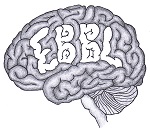Andromeda88
Banned
- Joined
- Apr 8, 2019
- Posts
- 2,876
- Reputation
- 1,723
Archive this by the way since its very important for new-comers and others with this addiction.
Watching Internet porn is the most popular activity on the Internet solely due to the Coolidge Effect. The Coolidge Effect was derived from a study comparing mating patterns between rats and the time taken to reach ejaculation.
When a rat continued to have sex with the same mate, the study found the time till ejaculation rose significantly over time.
When a rat mated with multiple partners, the time till ejaculation remained fairly constant, proving an important truth about Internet porn; Internet porn is not a repetitive task. It provides for virtually unlimited partners, transforming the user’s tastes to lead to more shocking content, even leading the user to viewing content not pertaining to his sexual orientation. The use of Internet porn is not constant, but rather an evolving process leading the user to progressively view harder content.
The social implication of porn contributes to the defining factor of Generation Y; we have made it our subconscious mission to not only replace real interactions with screens, but also designate it as socially acceptable behavior. For example, if a group of four or five members of Generation Y are socializing together and two or three of them are dominating the conversation, it is not only not rude, but completely socially acceptable for that fourth or fifth person take out his smart phone and start texting or flipping through the Facebook newsfeed.
 en.m.wikipedia.org
en.m.wikipedia.org

Youngsters are more vulnerable and feel excited to gain uninhibited access to porns. The rush is new to them, expectancy and curiosity make it quite irresistible to them. Adults are equally prone to have this disorder. A significant reason responsible for the addiction to porn is boredom and eagerness to experience something that is less likely to happen in the real life. Loneliness, lack of interesting activities in the life, isolation from other family members, depression and anxiety are some of the most common factors which result in spending a heavy amount of time on watching porn.
The leading problems associated with addiction to porn are erectile dysfunction, loss of intimacy between the partners, irritability in case of not getting access to pornography. The addicts also develop a tendency to compulsively lie in order to hide their addiction. Porn addicts are more likely to cheat and behave dishonestly with their partners. For them, everything else takes a back seat. Even those parts of their life which need attention become secondary to them. This creates an atmosphere of distrust and frustration in the family. An attitude of carelessness creeps into the person towards his work. Moreover, porn gives rise to many sexual fantasies which have elements of violence, aggression leading to more and more sexual assault cases.
porn is bad lol
Watching Internet porn is the most popular activity on the Internet solely due to the Coolidge Effect. The Coolidge Effect was derived from a study comparing mating patterns between rats and the time taken to reach ejaculation.
When a rat continued to have sex with the same mate, the study found the time till ejaculation rose significantly over time.
When a rat mated with multiple partners, the time till ejaculation remained fairly constant, proving an important truth about Internet porn; Internet porn is not a repetitive task. It provides for virtually unlimited partners, transforming the user’s tastes to lead to more shocking content, even leading the user to viewing content not pertaining to his sexual orientation. The use of Internet porn is not constant, but rather an evolving process leading the user to progressively view harder content.
The social implication of porn contributes to the defining factor of Generation Y; we have made it our subconscious mission to not only replace real interactions with screens, but also designate it as socially acceptable behavior. For example, if a group of four or five members of Generation Y are socializing together and two or three of them are dominating the conversation, it is not only not rude, but completely socially acceptable for that fourth or fifth person take out his smart phone and start texting or flipping through the Facebook newsfeed.
Coolidge effect - Wikipedia
Youngsters are more vulnerable and feel excited to gain uninhibited access to porns. The rush is new to them, expectancy and curiosity make it quite irresistible to them. Adults are equally prone to have this disorder. A significant reason responsible for the addiction to porn is boredom and eagerness to experience something that is less likely to happen in the real life. Loneliness, lack of interesting activities in the life, isolation from other family members, depression and anxiety are some of the most common factors which result in spending a heavy amount of time on watching porn.
The leading problems associated with addiction to porn are erectile dysfunction, loss of intimacy between the partners, irritability in case of not getting access to pornography. The addicts also develop a tendency to compulsively lie in order to hide their addiction. Porn addicts are more likely to cheat and behave dishonestly with their partners. For them, everything else takes a back seat. Even those parts of their life which need attention become secondary to them. This creates an atmosphere of distrust and frustration in the family. An attitude of carelessness creeps into the person towards his work. Moreover, porn gives rise to many sexual fantasies which have elements of violence, aggression leading to more and more sexual assault cases.
porn is bad lol







